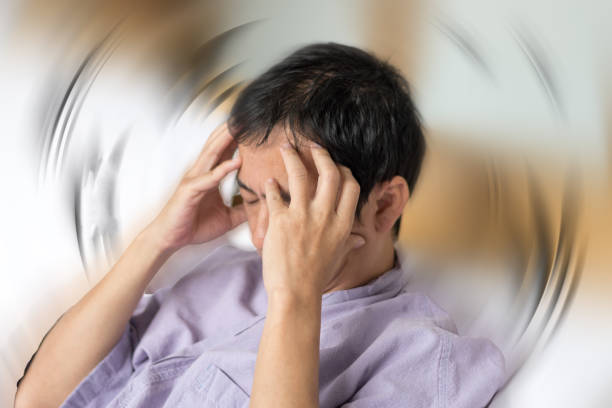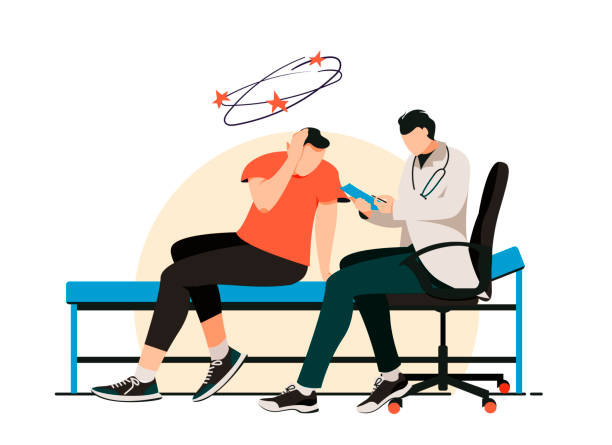Alternative Treatments
How To Avoid Vertigo
Do you frequently feel dizzy and out of sorts? It could be a symptom of vertigo, a disorder that affects millions of people worldwide. In this article, we’ll look at how to avoid vertigo and restore control of your balance. We’ll share practical advice and tactics to help you manage and lessen vertigo symptoms, whether you have sporadic bouts of dizziness or chronic spinning sensations. We will discuss a variety of approaches that can help alleviate vertigo, ranging from basic lifestyle adjustments to specific exercises and therapies. You can dramatically enhance your quality of life and decrease the burden of this terrible condition by identifying the fundamental causes of vertigo and implementing the appropriate remedies. Don’t allow vertigo hold you back any longer; keep reading to learn how to regain your equilibrium and live a life free of dizzy spells.

What is Vertigo?
Vertigo is a type of vertigo that causes a spinning or whirling sensation. Unlike ordinary dizziness, which can be caused by a variety of circumstances, vertigo is usually caused by a malfunction in the vestibular system, the region of the inner ear that is in charge of maintaining balance. When this mechanism is interrupted, it can cause vertigo by creating a misleading impression of movement.
Vertigo is divided into two types: peripheral and central. Problems in the inner ear cause peripheral vertigo, while problems in the brain induce central vertigo. Benign paroxysmal positional vertigo (BPPV) is the most frequent type of vertigo, which arises when microscopic calcium crystals in the inner ear become dislodged and give misleading signals to the brain.
Causes of Vertigo
Vertigo can be caused by a variety of factors, and understanding these factors is critical for properly controlling to avoid vertigo episodes. The following are some of the most common causes of vertigo:
- Inner Ear Disorders: Conditions such as BPPV, Meniere’s disease, and vestibular neuritis can impair normal inner ear functioning and cause vertigo.
- Head Injuries: Traumatic head injuries, such as concussions, can cause inner ear or brain damage, resulting in vertigo.
- Migraines: Vertigo is a symptom of certain forms of migraines known as vestibular migraines.
- Medications: Vertigo is a side effect of some drugs, including some antibiotics and anticonvulsants.
- Anxiety and Stress: Emotional elements such as worry and stress can cause or exacerbate vertigo symptoms.
- Age-Related Changes: As we become older, the inner ear begins to deteriorate.

Symptoms of Vertigo
Vertigo has distinct symptoms that vary in severity and duration. Among the most prevalent vertigo symptoms are:
- Spinning Sensation: The sensation of spinning or whirling, as if your surroundings are moving.
- Nausea and Vomiting: Nausea and vomiting are common symptoms of vertigo, and some patients vomit during severe bouts.
- Balance Loss: Difficulty keeping balance, resulting in unsteadiness and the possibility of falling.
- Sweating: Excessive perspiration, especially during vertigo attacks.
- Ringing in the Ears: Tinnitus, a ringing or buzzing sound in the ears, may be experienced by certain people in addition to vertigo.
It’s important to note that vertigo symptoms can differ from person to person, and some people may experience additional symptoms that aren’t listed here. If you feel you have vertigo, it’s best to contact with a doctor for a proper diagnosis.
Diagnosing Vertigo
A healthcare expert would normally do a complete evaluation to identify vertigo, which may include:
- Medical History: Gathering information on your symptoms, their frequency and duration, as well as any probable triggers.
- Physical Examination: Physical examination includes assessing your balance, eye movements, and other indicators that can help establish the root cause of your vertigo.
- Hearing Tests: Hearing tests are performed to detect any hearing loss or inner ear disorders.
- Imaging Tests: Imaging tests such as magnetic resonance imaging (MRI) or computed tomography (CT) scans may be conducted in some circumstances to rule out alternative causes of vertigo.

Treating Vertigo Naturally
There are numerous techniques you can take if you want to manage and avoid vertigo symptoms organically. These techniques are intended to address the underlying causes of vertigo and provide relief without the need of medication. Here are a few natural treatment options to consider:
- Epley Maneuver: The Epley Maneuver is a treatment used to treat BPPV, the most prevalent kind of vertigo. It consists of a sequence of head and body motions that aid in the repositioning of dislodged calcium crystals in the inner ear.
- Vestibular Rehabilitation Exercises: These exercises stimulate the vestibular system to improve balance and minimize dizziness. They can be done at home or under the supervision of a physical therapist.
- Ginger: Ginger has long been used as a natural cure for nausea, and it can also help with vertigo-related nausea. It is available in a variety of forms, including ginger tea and pills.
- Stress Management: Because stress and worry can aggravate vertigo symptoms, including stress management practices into your daily routine, such as meditation, deep breathing exercises, or yoga, can be therapeutic.
- Ginkgo Biloba: This herbal supplement may help lessen the frequency and intensity of vertigo attacks by improving blood flow to the brain. However, before beginning any new supplements, you should consult with a healthcare expert.
While these natural therapies may be beneficial for some people, it is important to note that results may vary and that it is recommended to speak with a healthcare expert before attempting any new treatments.
Medications for Vertigo
In some circumstances, medication may be required to manage vertigo symptoms, particularly if natural cures are ineffective. The following are some common drugs used to treat vertigo:
- Antihistamines: These drugs can help lessen dizziness and nausea caused by vertigo. They function by preventing the release of histamine, a substance in the body that contributes to allergic responses and inflammation.
- Benzodiazepines: These medications have a soothing impact on the central nervous system and can help alleviate vertigo-related anxiety and dizziness.
- Anti-nausea medications: Anti-nausea medications, such as ondansetron or promethazine, may be prescribed to treat vertigo symptoms.
It is vital to note that medication should only be used under the supervision of a healthcare expert because it may have negative effects or interact with other medications.

Exercises and Techniques to Relieve Vertigo
In addition to the previously stated Epley maneuver, there are various treatments and exercises that might help alleviate vertigo symptoms. These exercises are designed to help you improve your balance, strengthen your vestibular system, and reduce dizziness. Consider the following exercises and techniques:
- Brandt-Daroff Exercises: These are a sequence of head and body motions that can assist in retraining the brain to adjust to the misleading signals that cause vertigo.
- Tai Chi: A slow, fluid martial art that blends deep breathing and meditation with slow, fluid motions. Regular Tai Chi practice helps enhance balance and lessen the frequency of vertigo attacks.
- Yoga: Certain yoga poses, such as the tree pose and the triangle pose, can assist increase balance and core strength, which can be good for people who suffer from vertigo.
- Visual Focus Exercises: These include concentrating on a stationary object while moving your head or body. This can aid in the coordination of your eyes and vestibular system.
Before attempting any new workouts or techniques, remember to start carefully and speak with a healthcare professional or a competent teacher.
Lifestyle Changes to Prevent Vertigo
Aside from specialized treatments and exercises, certain lifestyle changes can help prevent or reduce vertigo episodes. Consider the following lifestyle changes:
- Maintain Hydration: Dehydration can exacerbate vertigo symptoms, so drink plenty of water throughout the day.
- Limit Caffeine and Alcohol: Both caffeine and alcohol can have an adverse effect on the vestibular system, causing or exacerbating vertigo symptoms. It may be advantageous to limit their usage.
- Avoid Triggering Movements: Certain head movements or positions might cause vertigo in susceptible people. Identifying and avoiding these vertigo-inducing motions can help reduce the frequency of vertigo attacks.
- Get Enough Sleep: Sleep deprivation or poor sleep quality can lead to increased stress and anxiety, which can aggravate vertigo symptoms. Make obtaining enough quality sleep each night a priority.
- Manage Stress: Stress-relieving activities such as exercise, meditation, or hobbies can help you manage your stress and lessen the influence of stress on your vertigo symptoms.

When to See a Doctor for Vertigo
While some cases of vertigo can be managed with lifestyle changes and natural remedies, it’s important to seek medical attention if:
- Your dizziness is strong or continuous.
- Other troubling symptoms include severe headaches, eyesight problems, and difficulties speaking.
- Your vertigo is accompanied by a high fever or a sudden loss of hearing.
- You frequently trip and fall or have difficulties walking.
Conclusion
Dealing with vertigo has been challenging, but through understanding its causes, symptoms, and treatment options, I’ve gained insights on how to regain control of my equilibrium and minimize the impact and how to avoid vertigo on my daily life. Exploring various methods, from natural remedies and exercises to lifestyle adjustments and medical interventions, has provided me with a range of tools to manage vertigo symptoms.
I recognize the importance of consulting with a healthcare professional to avoid vertigo and determine the most suitable course of action for my specific case. I’m committed to not letting vertigo hold me back any longer and am taking essential steps to regain my equilibrium, aiming for a life free from dizzy spells.


